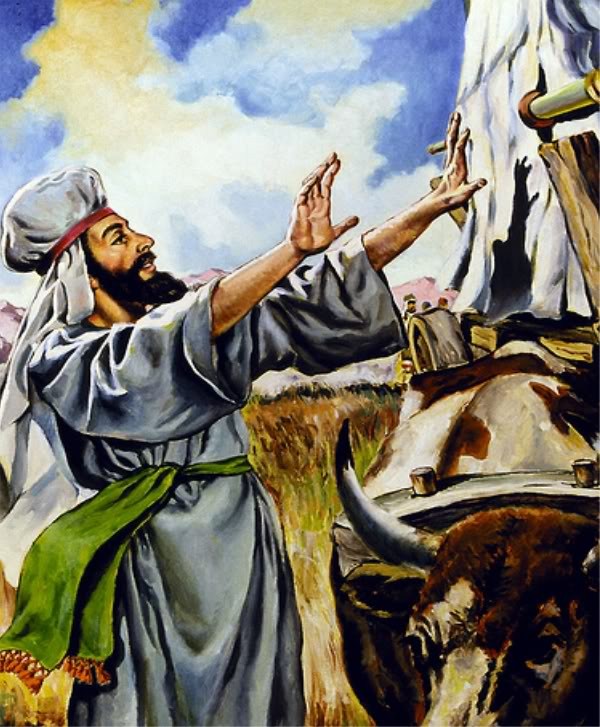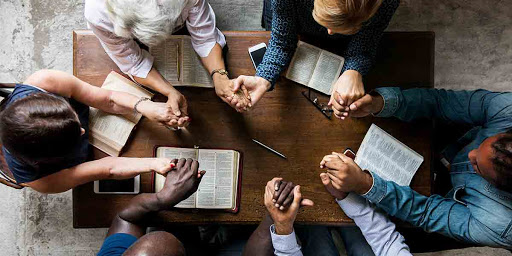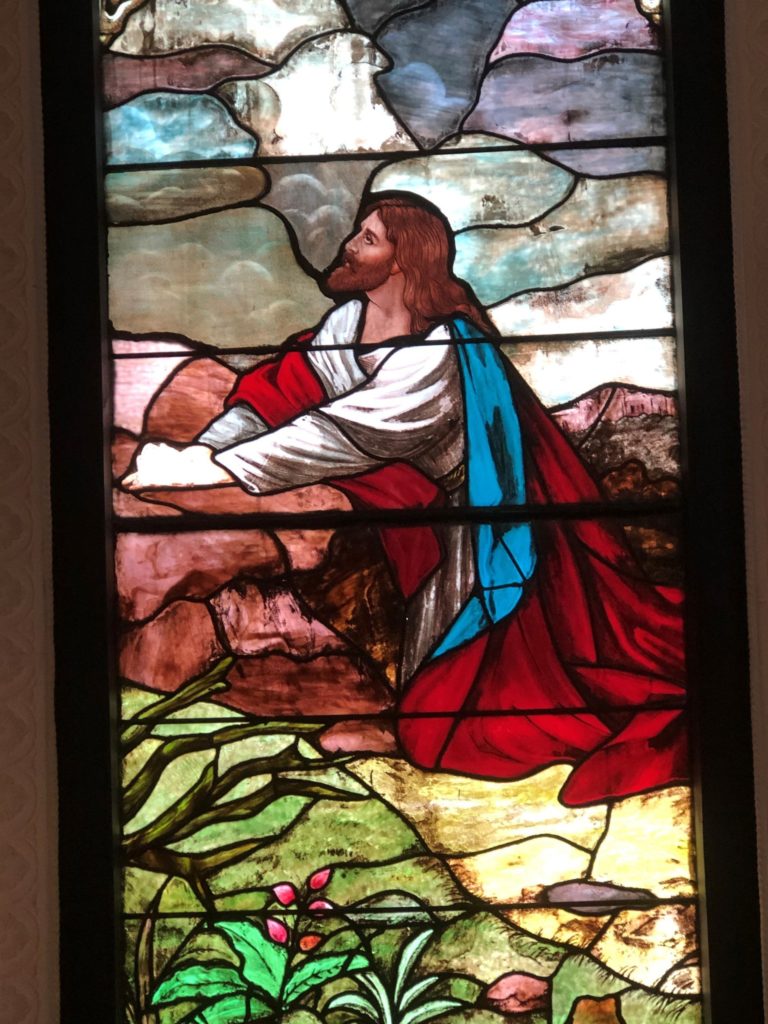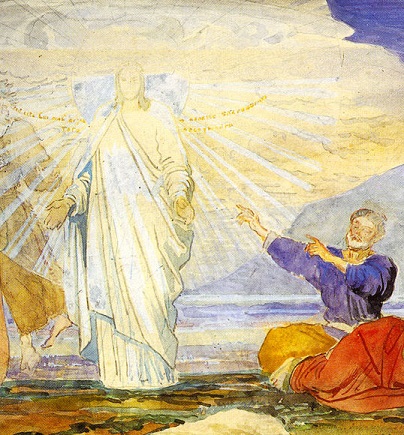Readings: 2 Kings 2:1-12 | 2 Corinthians 3:23-18; 4:1-6 | Mark 2:2-9
Text: Mark 9:2-9
Have you ever stared at the sun? I hope not, because it would burn your corneas and you’d be blind. Have you ever handled molten rock? If you did, it would burn your skin irreparably. Have you ever eaten highly radioactive material? It would destroy your cells and probably trigger cancer. In all these cases, there are things which our bodies cannot handle.

There’s one more thing which is too much for us to endure: The glory of God. The glory of the Triune God outshines the sun and should we find ourselves near it, it would consume us in body and in soul. This is so serious that even if any of the five senses is exposed, it would destroy us. Consider these events:
The ears of the Israelites:
18 Now when all the people saw the thunder and the flashes of lightning and the sound of the trumpet and the mountain smoking, the people were afraid and trembled, and they stood far off 19 and said to Moses, “You speak to us, and we will listen; but do not let God speak to us, lest we die.” (Exodus 20:18-19)
The eyes of Moses:

18 Moses said, “Please show me your glory.” 19 And [the Lord] said, “I will make all my goodness pass before you and will proclaim before you my name ‘The Lord.’ And I will be gracious to whom I will be gracious, and will show mercy on whom I will show mercy. 20 But,” he said, “you cannot see my face, for man shall not see me and live.” (Exodus 33:18-20)
The hands of Uzzah:

5David and all the house of Israel were celebrating before the Lord, with songs and lyres and harps and tambourines and castanets and cymbals. 6 And when they came to the threshing floor of Nacón, Uzzah put out his hand to the ark of God and took hold of it, for the oxen stumbled. 7 And the anger of the Lord was kindled against Uzzah, and God struck him down there because of his error, and he died there beside the ark of God. (2 Samuel 6:5-7)
All of these examples show us what the hymnwriter captured so well: “Holy! Holy! Holy! Though the darkness hide Thee, Though the eye of sinful man, Thy glory may not see, Only Thou art holy; there is none beside Thee. Perfect in power, in love, and purity.”[1]
But while God’s glory shines brighter than we can bear, in the face of Jesus we find His glory to save. Both of these realities meet on the mount of Transfiguration.
The holy, Triune God does not want us to be consumed by His glory. He did not want the Israelites to die, so He warned them not to touch Mount Sinai. He did not want Moses to die, so the Lord covered him with His hand. He did not want the Levites, like Uzzah, to die, so He gave them certain duties, vestments to wear, and the daily sacrifices. To sum up His intentions toward us, He says through Ezekiel, “As I live, declares the Lord God, I have no pleasure in the death of the wicked, but that the wicked turn from his way and live.”[2] His desire is not to destroy, but to save.[3]

So since it’s a fact that His glory consumes sinners, God hides Himself. For Israel, when the glory of the Lord appeared, it was always with a covering:
“God called to him out of the bush, “Moses, Moses!” And he said, “Here I am.” 5 Then he said, “Do not come near; take your sandals off your feet, for the place on which you are standing is holy ground.”
“The glory of the LORD dwelt on Mount Sinai, and the cloud covered it six days. And on the seventh day he called to Moses out of the midst of the cloud.”
“[The high priest shall] put the incense on the fire before the LORD, that the cloud of the incense may cover the mercy seat that is over the testimony, so that he does not die.”[4]
In the burning bush, the cloud of fire, and the cloud of incense, God hides Himself so that He is able to dwell among sinners and they are not destroyed. Actually, out of Scriptures like these, we learn that God dwells among man by two things: covering and sacrifice.
Then comes the Son of God. He’s no less holy or divine. His glory is the same as His Father and the Holy Spirit.[5] And yet, “the Word became flesh and dwelt among us, and we have seen his glory.”[6] How can this be? Through covering and sacrifice.

He covers Himself with human flesh. “In Him, the fullness of deity dwells bodily.”[7] Most of the time, we hear how Jesus walked among the people, touched the sick, spoke to them in parables, and embraced little children. But at the Transfiguration, we’re reminded that Jesus is indeed the same God of the Old Testament. He is the God who “dwells in inapproachable light” and is “a consuming fire”[8] for those who hate Him. The Son of God revealed His glory, veiled as it was within human flesh. At this, Peter, James, and John hit the floor like the Prophet Isaiah. But like Isaiah, whose lips were cleansed by what was taken from the altar, the three Apostles do not die.[9]
And that’s because of the sacrifice. “This is My beloved Son,” the Father’s voice declared out of the cloud. The fulfillment of Abraham’s sacrifice of Isaac, God the Father will sacrifice His Son, His only Son, Jesus, on the mount of Calvary.[10] The flogging, the thorns, and the spear will not be held back at the last minute, but God will offer up His beloved Son for the sins of the world—for all of your sins. There on that mountain, the Lord provided salvation.
In Jesus Christ, God dwells among us through a new and perfect covering and sacrifice. More than veiling His glory through a passing mist or smoke of incense, the covering Jesus brings lasts for eternity: All who believe in Him are covered with His perfect and pure life: “For as many of you as were baptized into Christ have been clothed with Christ.”[11] This is the better and perfect covering! And He has made a better sacrifice—one that doesn’t need to be offered day after day and year after year. The holy and precious blood of God’s Son is shed for you and for all, and it washes away every impurity.[12]
And through this, the Triune God has made His dwelling more intimately than even the Garden of Eden when He walked among His people.[13] Our Lord promises, “Where two or three are gathered in My Name there I am among them” and “Behold, I am with you always, even to the end of the age”[14]—not based on your obedience but upon His calling you to believe, and because He dwells not just next to us, but shares human flesh with us!

So we gather here in His Name and God is with us—Immanuel. While we are gathered here, we hear, see, and touch His glory. We hear God speak from the Scriptures through which He creates and strengthens faith. We hear the absolution, but it’s not merely the pastor’s forgiveness; but God’s. We see and touch—and even taste—His glory in His Supper. “Take, eat; This is My Body…take, drink; This is My blood.” Make no mistake, the bread we take is God’s body and the wine we drink is God’s blood. Far from being consumed in wrath, He says, “This is for you, for the forgiveness of sins.” So the Scripture is fulfilled which says, “the Word became flesh and dwelt among us, and we have seen his glory.”
So Christians are covered in Christ, cleansed from all impurity before God. That brings up a question in our modern context. Since the last part of the 20th century, there has been a push toward making worship more casual. “Worship with a relaxed fit” is the motto of one Baptist church I’ve seen.[15] Now let me make it clear that there is nothing condemnable about orders of worship or what congregants decide to wear. Christ our Lord has fulfilled the time of divinely mandated details for worship, and He has saved us from being consumed and condemned by Law and sin. Having fulfilled them, He has changed the approach to festivals, seasons, and types of clothing, from condemnation for getting it wrong to freedom to bask in Christ’s all-sufficient work.[16] Through Him and what He has done, we are freed to worship the Father in the Holy Spirit and truth.[17]

Now, that also means that we are freed to fully appreciate our great God and Savior. The God in whose presence no wicked person may dwell, has given Himself for us. His Son, “though he was in the form of God, did not count equality with God a thing to be grasped, but emptied himself, by taking the form of a servant, being born in the likeness of men. And being found in human form, he humbled himself by becoming obedient to the point of death, even death on a cross.”[18] So those who worship are opened to acknowledge Him with reverent awe and holy joy.
That’s why we stand at the Name of the Holy Trinity at the beginning of service and on hymn stanzas marked with the triangle. We are delight in the Triune God who has redeemed us and mark ourselves with the sign of the precious mark of salvation—the cross and His Name. Filled with awe at our heavenly King who has come to dwell in our lowly midst, when He speaks to us in the Gospel, we stand and sing Hallelujah and confidently speak our faith in what our God has done. We are free to stand or kneel as we choose during the prayers, and free to kneel or stand when our Lord uses His servant to give us His holy Body and Blood. We are free to joyfully sing the Scriptures and songs of praise to the Lord.
And all of this is pleasing to God not because of our voices or our clothes, or anything in us. It is pleasing to Him through a faith which believes in God’s beloved Son and listens to Him. Through Him, God has made His glory to shine brighter than anything in this creation ever could. In Christ Jesus, we have the hope of glory,[19] not mediated by a covering, but seeing Him face-to-face, free from sin and freed from death. To God alone be the glory: In the Name of the Father and of the + Son and of the Holy Spirit. Amen.

[1] “Holy, Holy, Holy” (LSB 507:3)
[2] Ezekiel 33:11
[3] see John 3:17
[4] Exodus 3:4-5; Exodus 24:16; Leviticus 16:13
[5] John 17:5
[6] John 1:14
[7] Colossians 2:9
[8] 1 Timothy 6:16, Hebrews 12:29
[9] Isaiah 6:1-6
[10] Genesis 22
[11] Galatians 3:27
[12] Hebrews 10:1-14
[13] Genesis 3:8
[14] Matthew 18:20, 28:20
[15] Highland Baptist Church, Clovis, NM
[16] Colossians 2:16-23
[17] John 4:23-24
[18] Philippians 2:6-8
[19] Colossians 1:26-27


